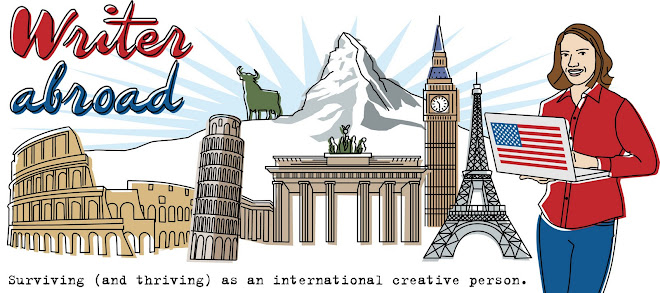Writer Abroad has now been a full-time freelancer for a year. Therefore, she now has an accountant. As her accountant was finishing her estimated taxes for
this year (this sucks, estimated taxes are the worst part of freelancing,
people), she asked Writer Abroad if she would be expecting any bonuses.
Ha. Do
freelancers get bonuses?
Well, here’s
Writer Abroad’s bonus for the year: a pat on the back for braving the freelance
world on a full-time basis. A pat on the back for being able to put the maximum
possible into a solo retirement fund. And a pat on the back for turning down a
six-figure job offer with a fancy title (an offer that was the result of a freelance job) when she knew in her heart that as
tempting as it was, she wanted to work for herself.
It takes
courage to be a full-time freelancer.
But wait. Should
she call herself a freelancer? An article, Why
I Stopped Calling Myself a Freelancer in Fast Company recently said that the term “freelancer” could be seen
as unprofessional.
Personally,
Writer Abroad believes calling yourself a freelancer is not unprofessional if
you are a professional. If you’re working for yourself because you have a
decade of experience and the connections to make it possible for you to work for
yourself for a living wage, then why wouldn’t you? If you’re working for
yourself because you want to work for
yourself and not because you don’t
have other options, then calling yourself a freelancer is something that should
fill you with pride.
Nevertheless,
Writer Abroad will be doing something about her “freelancer” title next year:
she is forming her own LLC or corporation. This is another step towards
cementing her love of working independently (and also a way to get rid of those horrific self-employment taxes the American government puts on people like us–why punish entrepreneurs, American government?).
In any case, Writer Abroad is thrilled to have built a
career where working for herself is possible and especially thrilled to have chosen a career
that fits her introverted tendencies perfectly.
So. Here’s
to all writers who are dreaming of doing the same (have courage!) or are already
doing it (congrats!). It really is wonderful.









